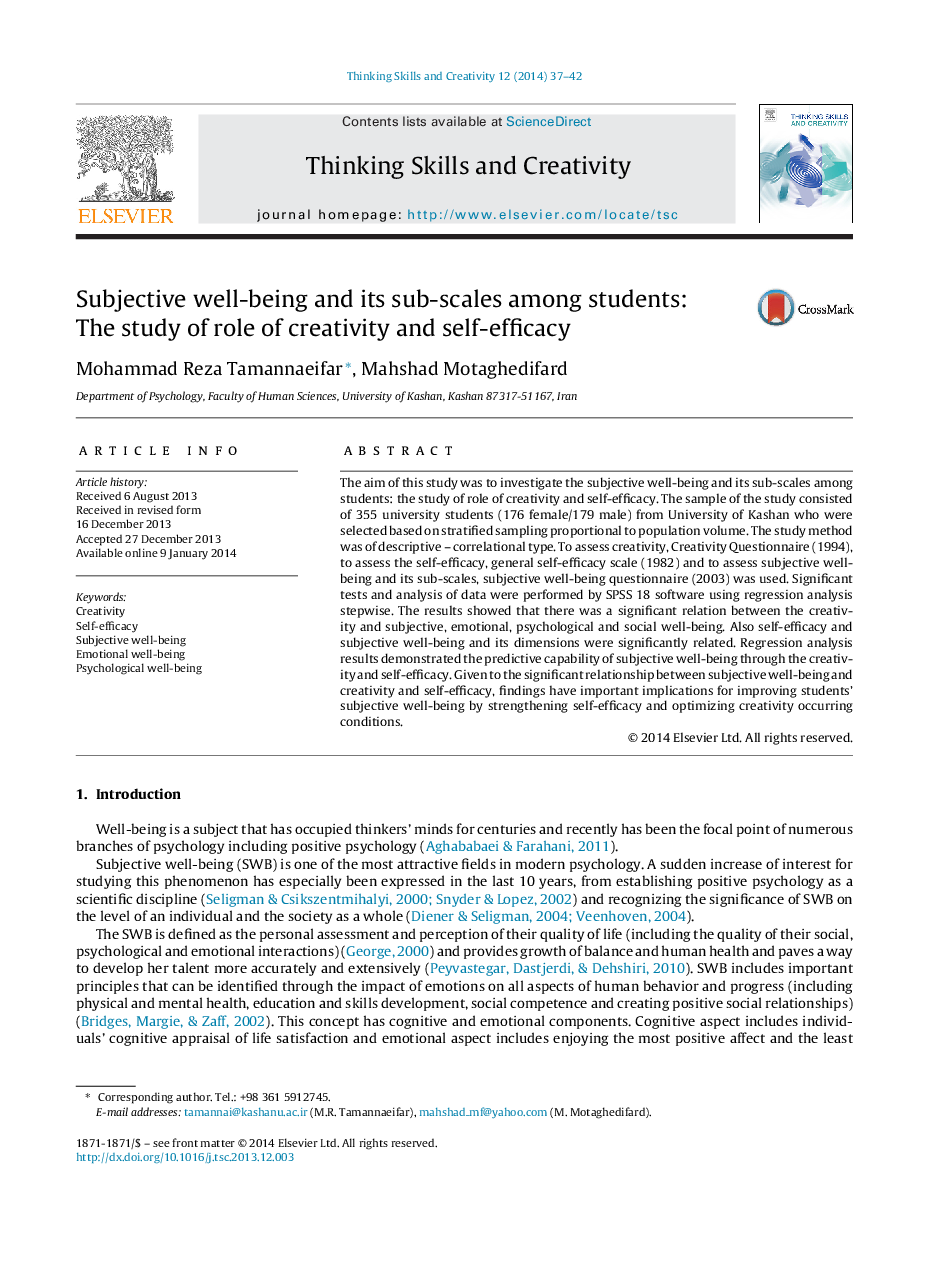| Article ID | Journal | Published Year | Pages | File Type |
|---|---|---|---|---|
| 375605 | Thinking Skills and Creativity | 2014 | 6 Pages |
Abstract
The aim of this study was to investigate the subjective well-being and its sub-scales among students: the study of role of creativity and self-efficacy. The sample of the study consisted of 355 university students (176 female/179 male) from University of Kashan who were selected based on stratified sampling proportional to population volume. The study method was of descriptive – correlational type. To assess creativity, Creativity Questionnaire (1994), to assess the self-efficacy, general self-efficacy scale (1982) and to assess subjective well-being and its sub-scales, subjective well-being questionnaire (2003) was used. Significant tests and analysis of data were performed by SPSS 18 software using regression analysis stepwise. The results showed that there was a significant relation between the creativity and subjective, emotional, psychological and social well-being. Also self-efficacy and subjective well-being and its dimensions were significantly related. Regression analysis results demonstrated the predictive capability of subjective well-being through the creativity and self-efficacy. Given to the significant relationship between subjective well-being and creativity and self-efficacy, findings have important implications for improving students’ subjective well-being by strengthening self-efficacy and optimizing creativity occurring conditions.
Related Topics
Social Sciences and Humanities
Psychology
Developmental and Educational Psychology
Authors
Mohammad Reza Tamannaeifar, Mahshad Motaghedifard,
